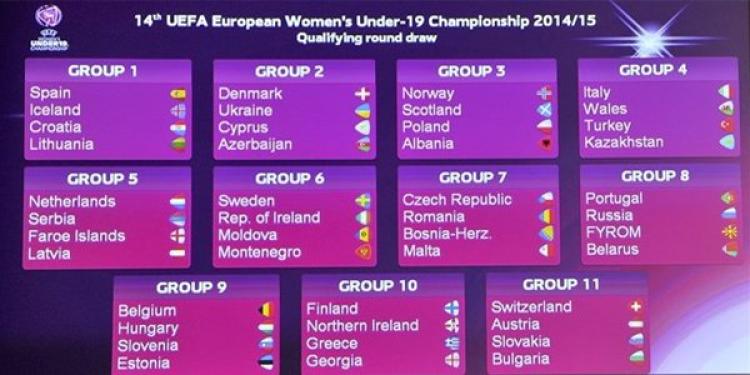The UEFA Champions League Draws Nigh
Posted: September 2, 2014
Updated: June 4, 2017

Monaco hosted the draw and now we know which of the thirty two teams are in which of the eight groups that comprise the 2014-15 UEFA Champions League.
The draw for the group stage of the 2014-15 Champions League was hosted in Monaco and still managed to look like a slightly dated bingo game for a bizarrely well dressed audience in a studio far too blue for its own good. Despite it being the 21st century the best club competition in the world is set in motion not by the latest in cutting edge technology, but by a selection of bowls full of balls with pieces of paper hidden inside them, opened in a slightly convoluted system by awkward looking notables of no particular note.
The audience is intent, a good draw can be the difference between success and failure in what has always been one of the hardest fought club competitions football has ever seen, and there are nervous chuckles as teams are allocated to a group and the managers find out who they’ll be facing. It is a strangely archaic way of doing things but keeps things where everyone can see them, a reflection perhaps of some of the mistrust in modern football FIFA’s antics have foisted upon the game.
The thirty two teams that have qualified are divided into eight groups denoted by letter, each with, your mathematics will have ascertained, four teams. This means with a bit of luck a team might not have to face the cream of the crop, although of course the system is designed to spread out the super teams where possible. Teams qualify by means of a coefficient system that sees the top three teams of the highest ranked countries get an automatic place. In countries ranked fourth, fifth and sixth, the top two teams qualify and from seven to twelve it’s just the champions.
The countries coefficient is derived from the performance of their nations teams over the previous five years and the club coefficient from the performance in European club competition over the previous five seasons and the league coefficient. For those that don’t qualify automatically, there are 11 places to be fought for in a dual path system of qualification matches one termed the champions route, the other the league route but in both cases the final goal is one of the remaining spots, and the chance to make gambling news. As you might expect competition is fierce.
The Cup Made From Newspaper
The Champions League 2014-15
• 32 teams in eight groups
• Some groups tougher than others
• Mobile betting on matches popular
UEFA came together in 1955 and strangely showed little interest in a Europe-wide club competition concentrating instead on the perhaps slightly more glamorous prospect of a European tournament for national sides. The actual impetus behind the setting up of a club cup came from the French sports daily “L’Equipe” and its then editor Gabriel Hanot, along with a colleague, Jacques Ferran, who came up with an outline for a club challenge tournament to played on Wednesdays under floodlights.
Whilst these days one has to be champion being initiated by people in the media saw that original year’s competition invite 16 clubs to participate based on their fan appeal and popularity. Real Madrid CF stamped themselves on this new tournament by winning the first five finals, and whilst other teams have had sustained periods of success, both FC Bayern Munich and AFC Ajax have done it three times in a row, no one has managed similar dominance.
The expansion and tightened qualification stipulations saw the competition become of the jewels in football’s crown, and has produced some of the most exciting matches to grace a pitch. The most successful clubs in the league’s history are Real Madrid, winning it a massive 10 times in all, just ahead of Milan and Bayern Munich tied with Liverpool just behind in rounding out the top three ranks of UEFA cup final victories.
The quantum leap for the tournament came in the 1992/93 season when it became the UEFA Champions League that introduced a group state to the traditional knock-out phase, better marketing, better media coverage, and smart strategies employed to create a more attractive business opportunity for the teams. These are not just ones of international brand recognition and merchandizing but also in terms of fiscal rewards as UEFA plays qualifying teams. Win a group match? That’s a cool million, get into the last 16? Have three and a half million, reach the final and you’re guaranteed six point five, win it and you get over 10m. It all adds up into a very profitable competition.
Another Bumper Year In the Champions League
Being a firm favorite for those that frequent online sportsbooks in the UK this years draw brought a flurry of predictions and prognostications across the web and the wider football community as a whole, with the final in 2013 watched by some 350,000,000 people you’re never short of an opinion of such a popular tournament. The eight groups this time round have produced some real humdingers with teams like Manchester City and Bayern Munich drawn against each other, as are Real Madrid and Liverpool.
Other English Premier League teams fared a little better with Arsenal only having to overcome Borussia Dortmund, and Chelsea looking like having had the luck of the draw facing Schalke, Sporting Lisbon and Maribor none of whom should be much problem for a team that slid six by Everton on Saturday during their nine goal thriller. Whilst their group could easily already be decided by then Manchester City’s fate could hang in the balance all the way till their game on the 25th of November against Bayern Munich.
As you might expect Real Madrid are heavily favored by the fluttering punters with Bayern Munich close on their heels, but Chelsea and Barcelona hover just a little behind and the unfortunate Manchester City, who so rarely catch a break in this competition, are placed even further back. Of course this being the modern era books are also run on the top goal scorer with Cristiano Ronaldo backed to win that although Lionel Messi might have something to say about it. There are even books on when each of the English Premier League teams in the competition is eliminated.
This accompanying circus of media interviews, screaming headlines, dramatic accusations and the sort of post-match comments that sports headline writers dream about just adds to what is already one of the most engaging international competitions. The loyalty of fans for national sides can’t be slightly but there’s something about supporting your local team as it travels abroad to play against some of the best teams in the world that can’t be equaled. The Champions League is truly a league of champions and the football shows it.












